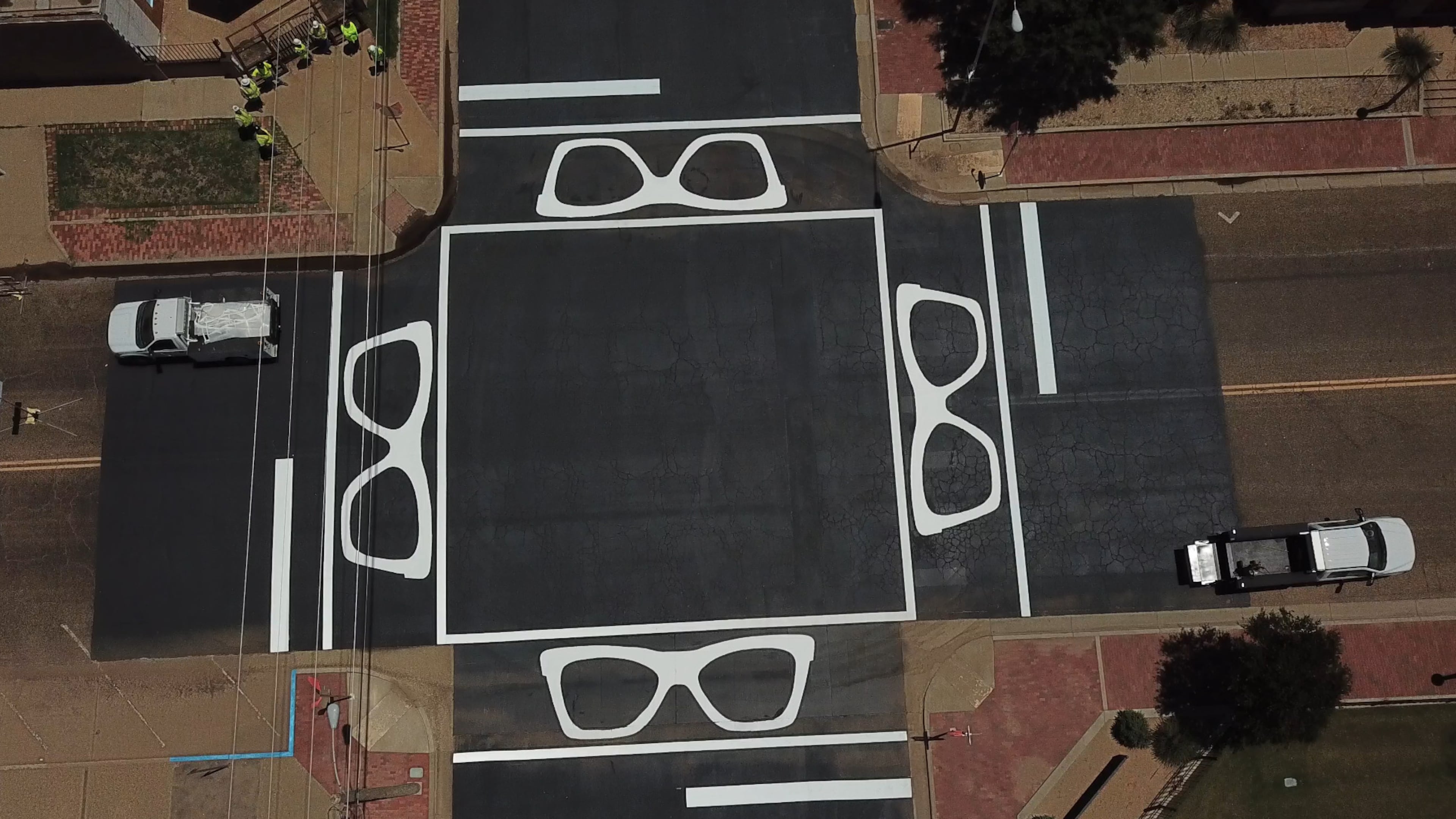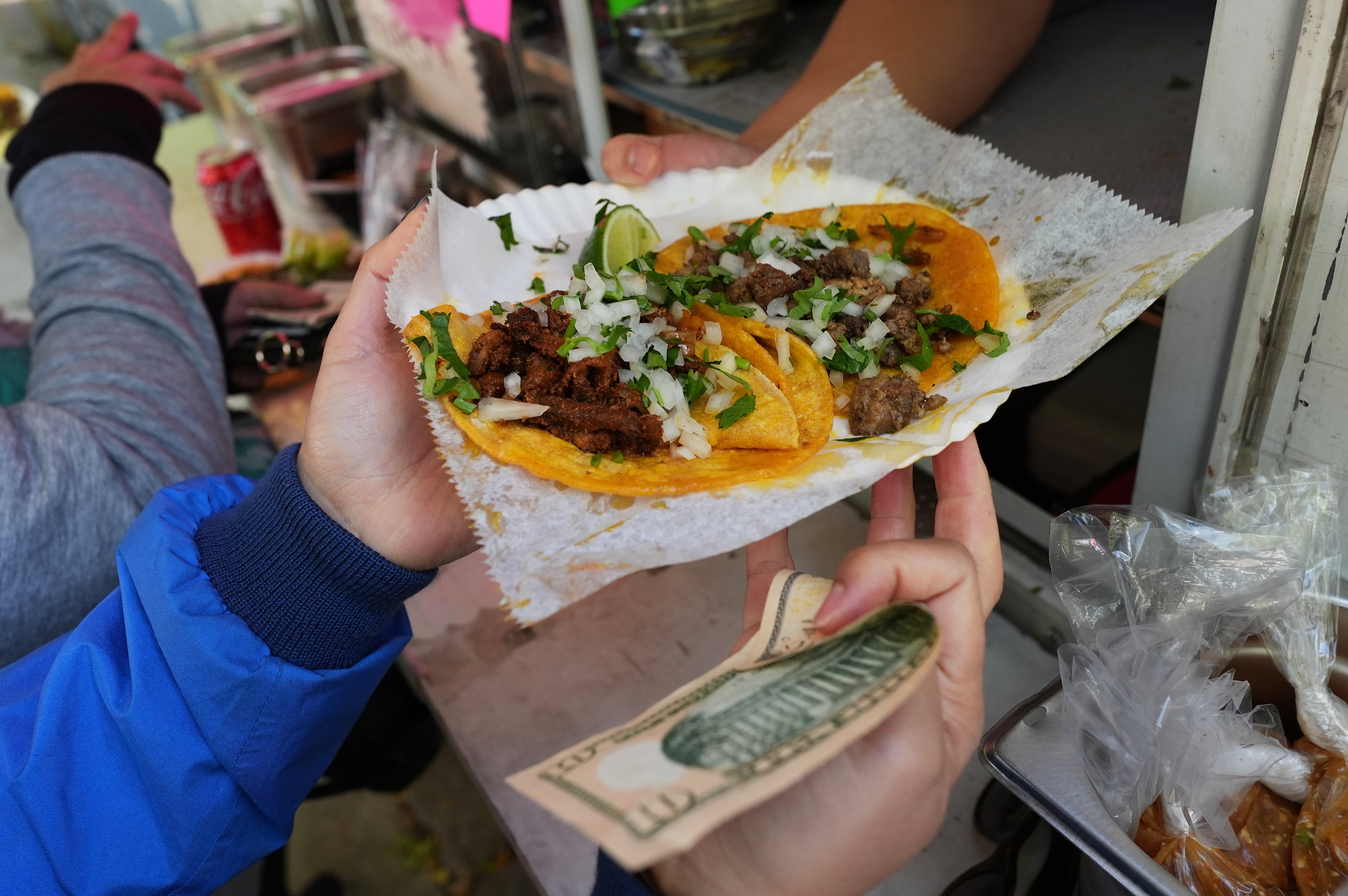Buddy Holly crosswalk in Texas hometown to be removed following governor's order on road safety

HOUSTON (AP) — Fans of the Buddy Holly crosswalk in his hometown of Lubbock, Texas, with a painted depiction of the rock and roll legend’s iconic glasses, will soon have to say goodbye to it. That'll be a day that will possibly make them cry.
Lubbock City Council members said this week they have no choice but to remove it, to comply with a directive from the Trump administration and Republicans to rid the public roadways of any political messages or artwork.
Laredo, in South Texas, removed a mural in October that protested the border wall along the southern border with Mexico. In August, Florida officials removed a rainbow-colored crosswalk outside the Pulse nightclub where 49 people were gunned down.
Lubbock's crosswalk was first installed in 2020 and is near the Buddy Holly Center, a downtown museum with exhibits honoring Lubbock’s most famous native son.
"It's such a tasteful cross section and people like it. But what do you do?” said City Council Member Christy Martinez-Garcia, who was among those questioning why it had to go.
Lubbock received a letter from the Texas Department of Transportation with “some harsh wording” that threatened the possible loss of state or federal funding for road projects if such artwork was not removed, David Bragg, Lubbock’s interim division director of public works, told council members on Tuesday.
“This was very broad letter. I don’t think it was intended to go after, say, the Buddy Holly glasses. Unfortunately it did,” Bragg said.
Mayor Mark McBrayer said the city had no choice but to comply.
“Probably everybody here got some communication from people wanting that not to be the case,” McBrayer said. “But I don’t really feel like we have the wherewithal to do anything about that without trying to litigate it and I don’t think there’s any appetite here anyway." Bragg said the removal will happen during normal maintenance next year.
On Oct. 8, Abbott directed the department to ensure that all Texas cities and counties are in compliance with federal and state guidelines on roadway safety and that symbols, flags and other markings conveying social or political messages are prohibited, as well as any signage and signals that don't directly support traffic control or safety.
“Texans expect their taxpayer dollars to be used wisely, not advance political agendas on Texas roadways,” Abbott said in a statement.
Abbott’s office did not immediately respond to an email seeking comment on Friday.
Abbott’s directive came after Trump's Transportation Secretary Sean P. Duffy sent letters to all U.S. governors in July saying that intersections and crosswalks must be kept free from distractions.
“Roads are for safety, not political messages or artwork,” Duffy's statement said.
Holly was born and raised in Lubbock, located in northwest Texas. He decided to play rock and roll music after seeing Elvis Presley perform in 1955. His best known songs include “That’ll Be the Day,” ’’Rave On” and “ Peggy Sue.”
Holly was only 22 when he died in a Feb. 3, 1959, plane crash near Clear Lake, Iowa, that also killed Ritchie Valens and J.P. “Big Bopper” Richardson. The three rockers’ deaths were immortalized in Don McLean’s 1971 song “American Pie,” and became known as “the day the music died.”
___
Follow Juan A. Lozano: https://x.com/juanlozano70

